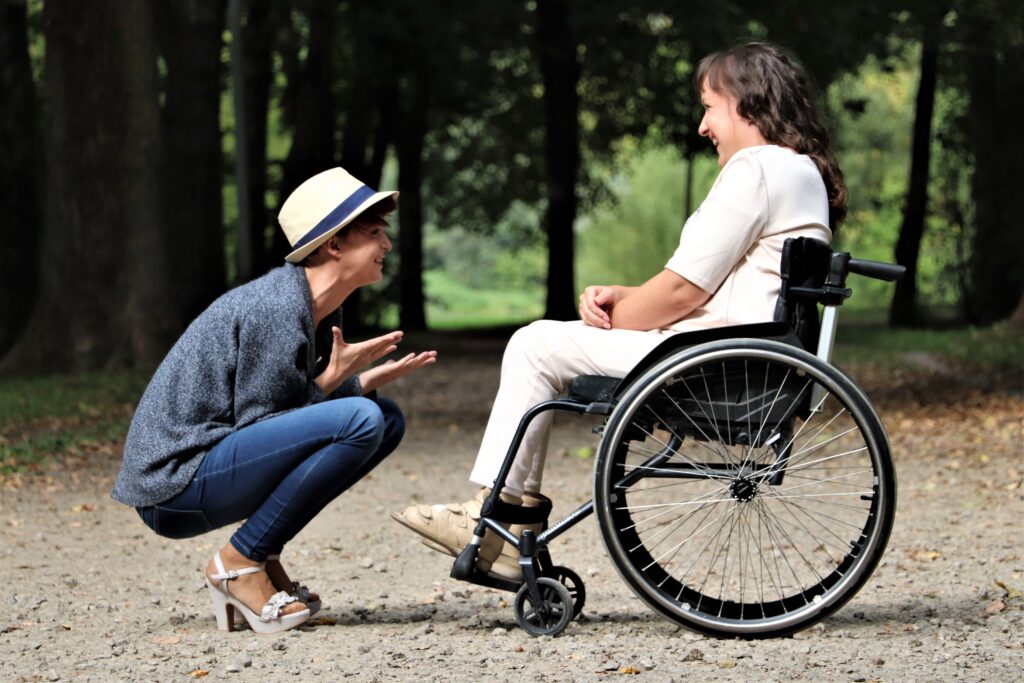
Have you ever found yourself in a situation where your feelings are hurt by someone else’s actions? Have you ever said or done something that could be construed as rude or unkind? If so, then I applaud your willingness to learn how to become more gracious. The world would be a much better place if we all learned how to be kinder and more polite with our words, actions and attitudes.
How To Be A Polite And Courteous Person
If you want to be a polite and courteous person, there are a few things you can do.
-Be kind to others.
-Be sensitive to the needs and feelings of others, especially when helping with tasks that require working with individuals who have impairments or other problems that set them apart from you (such as being deaf).
-Respecting differences in people’s physical appearance, cultural backgrounds, speech patterns, and food preferences can help to ensure that everyone is treated fairly and equitably in all aspects of life, including employment opportunities and social interactions outside of the workplace (including clubs).

Being Gracious Requires That You Pay Attention
Being gracious requires that you pay attention.
Attention is a powerful tool, one that can be used to convey meaning and intention. When you are listening to someone talk, pay attention with your eyes. Look at them while they speak. Make eye contact and nod from time to time as if in agreement or understanding—even if you don’t really understand what they’re saying! This shows them that you care about them, are interested in what they have to say and that you are listening. It also lets them know that there’s nothing more important on your mind at the moment than listening to what they have to say (even when there actually is).
Showing Gratitude Is An Important Part of Being Gracious
Gratitude is a wonderful approach to exhibit good manners. It’s a potent tool for social interaction as well as for improving your outlook on life. But before we talk about the benefits of gratitude, let’s clear up a common misconception:
Gratitude isn’t just being thankful for what you already have—it’s also being thankful for what you’ve done or can do in the future! People often think that if they feel like they have nothing left to give, then it doesn’t make sense to say thank you now. But this is not true! Even if all your energy has been spent on helping others in some way (and especially if it has), there will still be a lot left over from that effort that can go toward others in need later on down the road.
Being a Good Listener Can Make You More Personable and Gracious
I always say that “listening is a skill” and I mean it.
In any conversation, when someone speaks to you, your first instinct is to respond. Your second instinct may be to project what you think they are going to say next based on the topic of the conversation (or even just your own thoughts). And then your third instinct might be a little more subtle: You may want to interrupt them so that they can get back on track with where you want them to go with their statement or thought process. This can be harmful for two reasons:
First, because it makes them feel like you are not taking in what they have said or asking questions about what was just said; second, because if there is something important being said at this moment but it does not fit into your agenda for how this meeting should go then maybe what’s being said isn’t all that important after all? And hey—if it isn’t important then why bother listening?
Gracious People Don’t Keep Score
–Gracious people are not petty.
-Gracious people do not hold grudges.
-Gracious people are forgiving.
-Gracious people do not envy others’ accomplishments, possessions, or attributes.
-They’re also not jealous of other’s luck or good fortune, because graciousness is about being grateful for what you have and happy for those around you who are doing well without feeling like you deserve more than them or that your life would be better if their lives were worse than yours in any way.

A Gracious Mindset Will Make You More Successful As Well As Happier In Life
Graciousness is a way of being, not just a way of behaving. It is not just about being nice or polite—it’s about being a good person.
Graciousness is a mindset that allows you to see the best in others, rather than focusing on their flaws or shortcomings. This can be challenging at times because when someone does something wrong, it’s simple to concentrate on this one action and let your mind wander. However, if you can be gracious instead, your brain will shift its focus from what’s wrong with someone else (and thereby produce negative feelings) and start looking for ways that person might improve themselves or make amends for what they did wrong (and thus generate positive feelings).
Graciousness is also an attitude toward life and other people that allows us all to feel welcome wherever we go; whether it be our workplace or home community where everyone knows each other well enough that problems arise now and then but are quickly dealt with in an amicable manner because we all want everyone else around us happy too!
Gracious People Are Good At Letting Go Of Small Issues
One of the most important aspects of graciousness is being able to let go of small issues. Gracious people don’t hold grudges, and they have a tendency to forgive quickly. They don’t let little things bother them, because they know that petty arguments are pointless and can be harmful in the long run.
The ability to let go of minor transgressions has its roots in acceptance: if you accept someone for who they are, then you won’t let your feelings be hurt by their actions or words. It also has its roots in self-respect: if you respect yourself enough not to get upset over every single thing that happens around you then chances are others will respect you too!
Learning To Be A More Gracious Person Will Help You Become A Kinder And Happier Individual
Being gracious is a skill. It’s one that can be learned, but it will take some time and effort on your part to get there. The benefits of learning to be more gracious are many and varied. As you learn to give people the benefit of the doubt, accept their apologies gracefully when they’re sincere, and let things go if they don’t turn out the way you had hoped, you’ll become more like-able, more successful, and happier.
I hope you found this article informative and thought provoking. There is a lot to be learned from being gracious, both about yourself and the people around you. It’s not always easy to be graceful when things go wrong or don’t go as planned but it can be an important part of helping us lead happier lives by becoming more mindful of others’ feelings and needs.









